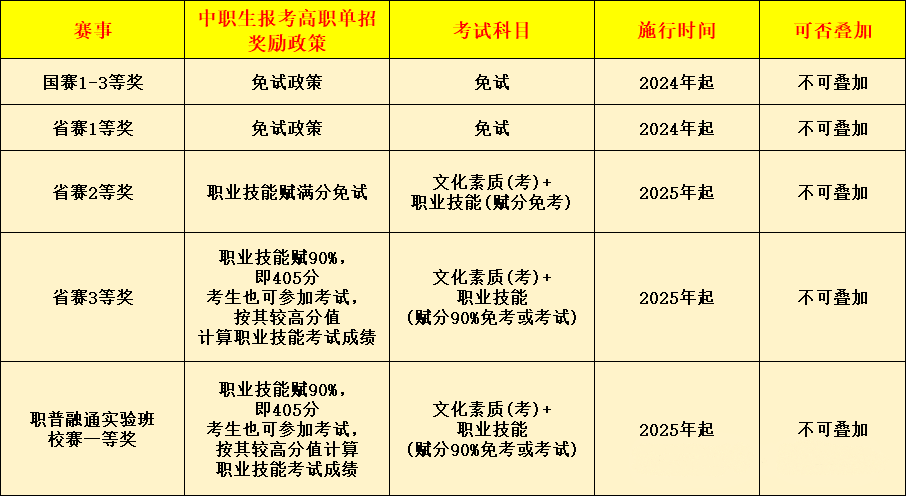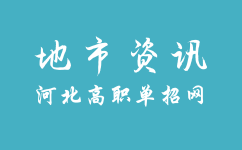2025年河北單招二類交通運(yùn)輸專業(yè)基礎(chǔ)測(cè)試《英語(yǔ)》
導(dǎo)讀:為了助力2025年河北單招二類交通運(yùn)輸專業(yè)的考生順利通過(guò)英語(yǔ)基礎(chǔ)測(cè)試,本站特別推出了《英語(yǔ)基礎(chǔ)測(cè)試專項(xiàng)練習(xí)》。該練習(xí)針對(duì)交通運(yùn)輸專業(yè)的需求,精選了涵蓋詞匯、語(yǔ)法、閱讀理解、寫(xiě)作等核心內(nèi)容的高質(zhì)量題目,旨在全面提升考生的英語(yǔ)水平和應(yīng)試能力。
為了助力2025年河北單招二類交通運(yùn)輸專業(yè)的考生順利通過(guò)英語(yǔ)基礎(chǔ)測(cè)試,本站特別推出了《英語(yǔ)基礎(chǔ)測(cè)試專項(xiàng)練習(xí)》。該練習(xí)針對(duì)交通運(yùn)輸專業(yè)的需求,精選了涵蓋詞匯、語(yǔ)法、閱讀理解、寫(xiě)作等核心內(nèi)容的高質(zhì)量題目,旨在全面提升考生的英語(yǔ)水平和應(yīng)試能力。

一、詞匯與語(yǔ)法知識(shí)(共20小題,每小題2分,滿分40分)
1. —Hi, Nancy. We won the match yesterday!
—_____
A. Excuse me? B. Congratulations!
C. It’s all right. D. Good idea!
2. —I think I lost my mobile phone.
—_____
A. I’m sorry to hear that. B. It’s nothing.
C. Oh, don’t mention it. D. Nice to hear that!
3. He _____ that he will succeed eventually.
A. believes B. goes
C. continues D. finds
4. I _____ myself the right man for the job.
A. manage B. say
C. give D. consider
5. Many overseas students _____ to their home countries for the summer vacation.
A. returned B. believed
C. found D. showed
6.The team _____ all kinds of difficulties and finished the task.
A. came B. settled
C. slept D. overcame
7.The 200-kilometer-long railway was _____ in 1909, two years ahead of schedule.
A. stopped B. hurt
C. completed D. promoted
8.Sarah showed _____ interest in music at an early age.
A. a B. an
C. the D. /
9.It took the band two and a half days to _____ their music for the movie.
A. walk B. eat
C. record D. listen
10.I was _____ to him the other day while it was raining heavily outside.
A. chatting B. discussing
C. enjoying D. drinking
11. —Must I water the flowers now?
—No, you _____. You may do it later.
A. shouldn’t B. couldn’t
C. mustn’t D. needn’t
12.—Excuse me. May I keep the book a little longer?
—Sorry. You _____ return it today.
A. must B. can
C. may D. need
13. I _____ follow you. Would you please repeat it?
A. can’t B. ought to
C. might D. mustn’t
14. —Is the man over there Mr Smith?
—No, it _____ be him. He has gone to China.
A. may not B. can’t
C. mustn’t D. shouldn’t
15.Children _____ sit in the front seat of a car. It’s too dangerous.
A. need B. needn’t
C. must D. mustn’t
16.—I forgot to bring my dictionary. Could I use yours?
—Yes, you _____.
A. can B. must
C. might D. should
17.—Are you interested in shopping online?
—Not so much. We _____ see real products but pictures.
A. shouldn’t B. can’t
C. mustn’t D. needn’t
18.This book _____ be Kitty’s. Only she likes to read this kind of books.
A. can B. must
C. may D. might
19.—I can’t find my key in my bag.
—You _____ it at home.
A. can have left B. may have left
C. must have left D. should have left
20. I _____ have watched that movie this afternoon. It will give me horrible dreams tonight.
A. should B. shouldn’t
C. need D. needn’t
二、完形填空(共10小題,每小題2分,滿分20分)
With the invention of the train, people could travel long distances at a higher speed more easily. 21)_____ people are worth remembering for their contributions to this great 22)_____. They are James Watt, Richard Trevithick and George Stephenson.
In 1776, James Watt, a British 23)_____ improved the steam engines. He 24)_____ the steam engine and made it an effective source of power. About 30 years later, Richard Trevithick invented steam locomotives. 25)_____ on Watt’s steam engines, he managed to build one of the first steam 26)_____ in 1804. George Stephenson built 27)_____ locomotives for railways. He 28)_____ the world’s first commercial passenger steam locomotive in 1825 and was later called “The Father of Railways”. 29)_____ his efforts, trains gradually became a 30)_____ means of transportation, with railways spreading all over the world.
21.A. One B. Two C. Three D. Four
22.A. breakdown B. breakup C. breakout D. breakthrough
23.A. pilot B. engineer C. repairer D. teacher
24.A. repaired B. moved C. improved D. stayed
25. A. Becoming B. Acting C. Working D. Writing
26.A. locomotive B. locomotives C. motives D. motive
27.A. steam B. gas C. electricity D. energy
28.A. produce B. produces C. produced D. producing
29.A. After B. Through C. Without D. In
30.A. big B. small C. minor D. major
三、用所給句子補(bǔ)全下面對(duì)話。(共10小題,每小題2分,滿分20分)
(A)
Ella: Hey, Yuting. I saw there’s a Chinese paper cutting museum nearby. Should I go there?
Yuting: Yeah. 31) __________ Paper cutting is a well-known art form in China.
Ella: I didn’t know that. 32) __________
Yuting: Sure. 33) __________
Ella: That’s a long time.
Yuting: Yes. 34) __________
Ella: Wow, that’s great. I heard Chinese people call it “chuanghua”.
Yuting: Yes. 35) __________
Ella: Cool.
A. And it’s still popular among young people.
B. You are right.
C. It’s a good idea.
D. What about you?
E. Could you teach me a little bit about it?
F. Because people use the art to decorate windows.
G. The history of paper cutting in China is over 1 000 years long.
(B)
Ella Baker: What’s your favorite invention?
Zhang Yuchen: 36)__________
Ella Baker: Why do you like it most?
Zhang Yuchen: Because it can help cars move easily. 37)__________
Ella Baker: I’m afraid not. I like the Internet best.
Zhang Yuchen: 38)__________
Ella Baker: Well, you know, I’m a teacher. 39)__________
Zhang Yuchen: I see. There’re so many inventions, and they’ve changed our lives so much.
Ella Baker: That’s true. 40)__________
Zhang Yuchen: Yeah. That would be cool.
A. Really? Why?
B. What about this?
C. I like ebooks best.
D. The wheel, of course.
E. Is it also your favorite invention?
F. I hope someday I can invent something useful.
G. I can find a lot of resources online to help me teach.
四、閱讀理解(2篇短文,共10小題,每小題3分,滿分30分)
(A)
Zhan Tianyou
TimeImportant Events
1861He was born in Guangdong Province.
ChildhoodHe showed interest in machinery.
1881He graduated from Yale and returned to China.
1905He began his work on the Jingzhang Railway.
1909Jingzhang Railway was completed.
41. What was Zhan Tianyou’s job?
A. A doctor.
B. An engineer.
C. A secretary.
D. A fireman.
42.When was Zhan born?
A. In 1861.
B. In 1881.
C. In 1905.
D. In 1909.
43. How long did Zhan work on the Jingzhang Railway?
A. 4 years.
B. 14 years.
C. 16 years.
D. 20 years.
44.Where did Zhan go to university?
A. In China.
B. In the UK.
C. In France.
D. In the US.
45. When Zhan was in his childhood, he was particularly interested in _____.
A. mathematics
B. Chinese
C. machinery
D. drawing
(B)
Wu Mei was born and raised in a village in the east of Hubei province. After graduating from college, she worked in a city. Later, she decided to give up her well-paid job in the city and go back to her hometown to start her own business. She aimed to let more people know about her hometown and help the villagers live a better life through daily posts on social media (社交媒體).
Her classmates in the middle school also went back home with her. They decided to give it a try and started their own business after a meeting.
They learned the skill together on how to promote themselves to get more followers. It was not easy at the very beginning as they learned everything by themselves. But gradually they began making money and also helped open the market.
Wu acts as a bridge to connect her hometown with the big world. “It’s never easy to draw people’s attention. But we’ll work hard to achieve our aims”, she said.
46.When did Wu decide to return to her hometown?
A. Right after graduating from college.
B. After working in a city for some time.
C. Before getting a well-paid job.
D. Before graduating from a college in Hubei Province.
47. What did Wu do when she went back to her hometown?
A. She started her business.
B. She taught in a middle school.
C. She became a nurse in a hospital.
D. She worked at a media company.
48.Wu used the social media to _____.
A. stay away from the real world
B. get more money from the rich
C. better promote her business and her hometown
D. let more people know about her life in the city
49.What does the underlined word followers mean?
A. Money.
B. Thief.
C. Fans.
D. Specialty.
50.How did Wu learn to promote herself online?
A. She was good at it at the beginning.
B. She learned by herself.
C. She found someone to help her.
D. She learned it from the university.
@畢業(yè)生,快來(lái)測(cè)一測(cè)適合報(bào)考的學(xué)校吧!
根據(jù)估分/查分情況,測(cè)算錄取概率,提供針對(duì)性的升學(xué)方案...已閱讀并同意《隱私保護(hù)協(xié)議》(我們十分注重您的隱私,點(diǎn)擊查看 《保密協(xié)議》)


